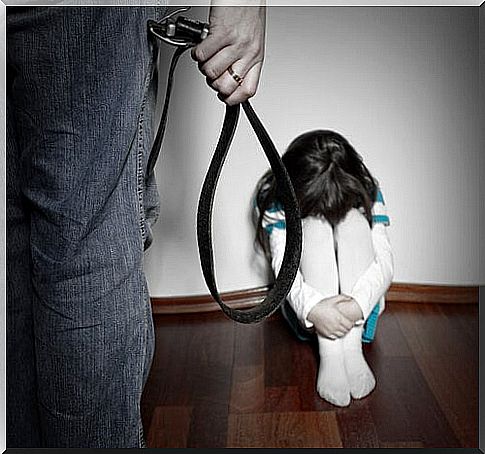Punishments Or Educational Consequences? Which Works To Correct The Behavior

When children misbehave or do not do what they should, we usually resort to punishments. But how effective is a punishment in correcting the behavior?
Let’s analyze the situation: Your son comes back from school and tells you that he has a lot of homework for the next day, which is why you ask him to do it. Hours go by and, when you check again, you discover that he has not done his homework yet. And it’s only two hours to go to sleep!
What options do you have?
- If they haven’t eaten, you think you can leave them without eating. Or take away dessert.
- Maybe leave a week without a console or television. Or without leaving.
- You can’t send him to sleep because it wouldn’t make sense.
- Some would even resort to physical violence against the child.
But are any of these options (or many similar ones) really effective?
The first thing we must ask ourselves is what we are trying to achieve.
Our objectives have to be clear:
- Educate
- Raise awareness
- Explain that consequences are caused by their actions
- Eliminate child misconduct
- Teach other ways to act or respond
- Teach to think and reason
- Provide better behavioral alternatives
To achieve these results we must look for the most effective methods.
Punishments by themselves only make the situation worse. Withholding something from a creature will not solve the problem. Still less cause him physical or psychological harm. On the contrary, all this can have severe consequences in the future (immediate or long term). If we want to do good to the child, we must consider more than punish him, generate an educational consequence.

How to correct behavior through educational consequences?
As I mentioned before, what we really want is not to create an evil in the child, but rather to prevent the bad behavior from repeating itself. We want to correct, educate. I have summarized here some tips to improve your child’s education:
- Correction must be immediate : applying a consequence in the afternoon to something the child has done in the morning is meaningless. The younger your children are, the faster they forget what happened.
- Parents must agree: if there is no coherence between what one says and what the other says, the child will feel confused. In addition, if one says no, while the other says yes, he will always go to whoever gives him the answer he is looking for.
- You must show firmness: if you made a decision, you must stick with it. You can’t put a limit on your child and then let him do whatever he wants. If you’ve told them to go to bed at ten o’clock, that must be the time they go to sleep. You can be flexible with some things and in some moments (for example, if you see an improvement in his behavior or that he is really sorry for what happened). You can always give other opportunities if you think it deserves it. But you must show firmness in your words. If you don’t, then they won’t believe what you say and they won’t take you seriously.
- You must be consistent: the correction you make must be consistent with the mistake you made. You can’t make him clean the whole house for spilling a glass of water.
- Show kindness: When trying to get your child to do something as a result of bad behavior, ask in a nice way. Guys react better when we show them affection.

- Suggest, participate: Before forcing the child to do an activity, it is preferable that you suggest it, that you give him options. You can also offer to help and participate in the task. In this way, you will avoid a resounding no, or possible complaints. For example, instead of “go tidy up your room”, you can say “what do you think if we are going to tidy up your room? So later you will find your things more easily ”.
- Explain the consequences of their actions: it is very important that the child understands that every action has a consequence. Explain what they can be so that they are clear, but avoid using threatening tones. For example, if he does not do homework, you should explain that later when he goes the next day he will have to explain to his teacher why he has not done it. You can also tell him that this can delay him in class and then he will have to dedicate twice the time which would take away the possibility of doing other activities that he enjoys.
Remember that it is important for your child to understand what you want to achieve and that everything you do is for his or her good.









